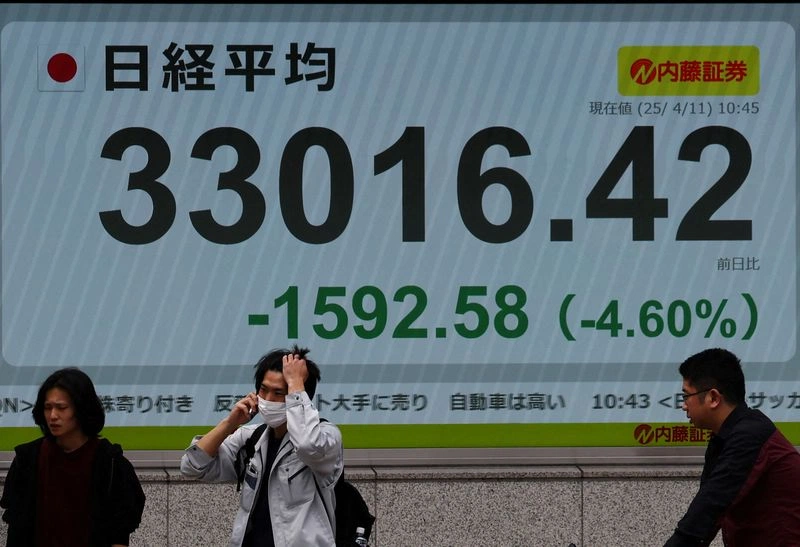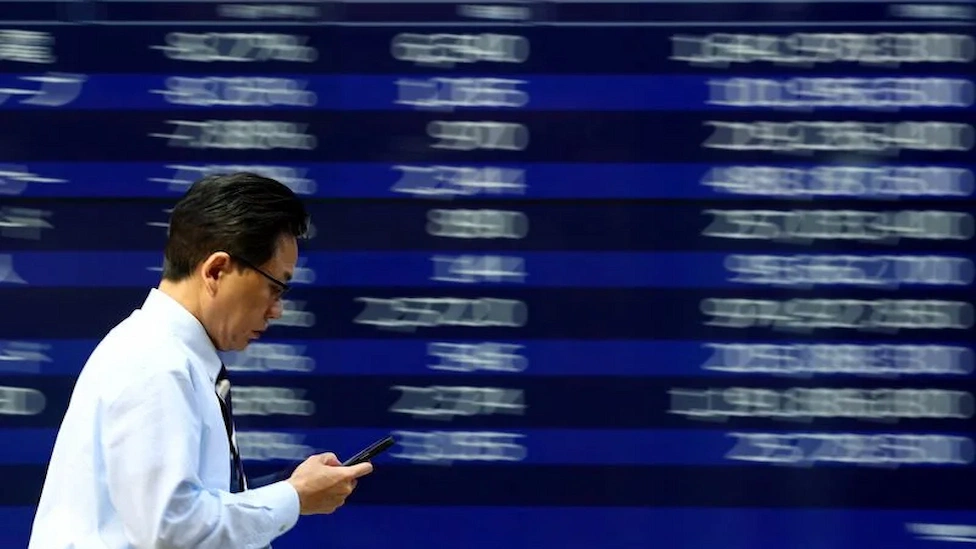AI Chip Trade War Intensifies: Global markets plummeted on Wednesday following the United States’ new restrictions on AI chip exports to China. The action affected technology behemoth Nvidia, whose stock declined 6% in after-hours trading. European and Asian stocks also dropped, while the price of gold shot to historic highs.
The U.S. dollar lost ground amid increasing investor unease. All this happens as tensions heat up in the ongoing trade war involving AI chips, which is attracting major players such as the U.S., China, and leading tech companies. Investors are now looking for cues from the Federal Reserve and global policymakers.
Also Read | UK Inflation Trend Drops Again: What Falling Prices Mean for the Economy
AI Chip Trade War Intensifies: Insights
- Nvidia estimated the new chip restrictions to cost the company $5.5 billion.
- U.S. stock futures and European markets fell as much as 1.3%.
- The trade war over AI chips is raising concerns of a wider tech and trade war.
- Gold jumped to an all-time $3,318 per ounce, up 2% on safe-haven buying.
- The U.S. dollar index lost 0.5%, while the yen and franc jumped.
- President Trump ordered an investigation into tariffs on important mineral imports.
- Chinese blue chips edged up, but the Hang Seng Index shed 1.9%.
- Bond yields eased as investors ran to the safety of government securities.
- Analysts caution against a tightening if tensions between China and the U.S. escalate further.
Background
There have been growing tensions between the U.S. and China over who controls cutting-edge technologies. Both nations have, in recent years, imposed tariffs and trade restrictions to safeguard their interests. The attention has now turned to AI hardware, particularly chips produced by U.S. firms such as Nvidia and AMD.
These chips are crucial for creating next-generation technology in both countries. The most recent action is viewed as a big move in the AI chip trade war, with each side attempting to gain an economic and technological edge.
Main Event
On Wednesday, the U.S. government imposed new licensing regulations on Nvidia and AMD aimed at the sale of their AI chips to China. In particular, Nvidia’s H20 and AMD’s MI308 chips are now subject to export control. This was part of Washington’s efforts to restrict China’s access to cutting-edge technology.
Nvidia acted quickly, stating the move could cut its revenue by $5.5 billion. The company’s stock declined 6% in after-hours trading.
Markets everywhere responded. The STOXX 600 index in Europe fell 0.9%, and U.S. S&P 500 and Nasdaq futures declined 0.7% and 1.3% respectively. In Asia, the Hang Seng Index fell 1.9%, although Chinese blue chips edged up on account of encouraging GDP numbers for April.
Analysts regard this as a turning point in the AI chip trade war. Wedbush Securities’ Daniel Ives described the action as a “clear sign” that more difficult times are ahead for Nvidia in China. WisdomTree strategist Aneeka Gupta, on the other hand, said global access to tech hardware is now at risk, adding to financial market uncertainty.
Fuel to the flames was added when President Trump initiated new reviews of tariffs, including an investigation into imports of critical minerals. Concurrently, China was said to have suspended deliveries of Boeing planes, signaling its retaliatory move.

Pedestrians pass by an electronic screen showing Japan’s Nikkei share average outside a Tokyo brokerage on April 11, 2025.
Photo Credits: Kim Kyung-Hoon (REUTERS).
Also Read | Trump Tariff Exemptions Boost European Stocks: Tech Sector Jumps 3%
Implications
The trade war over AI chips may rewire the global technology supply chain. American technology companies may lose revenues from Chinese customers. Investors are likely to move to safe havens such as gold and government securities. Central banks in Japan and Europe would be forced to modify policies if there is increased economic pressure.
For China, restricted access to the fundamental chips that drive AI may dampen technological development. Companies in various industries, including aviation and semiconductors, could be affected by the ripples. The restrictions can also lead to other countries aligning sides or establishing their chip production capacities.
Conclusion
The AI chip trade war is escalating and has no signs of abating. Specialists predict additional curbs and countermeasures are imminent. As tensions escalate, global markets could remain unstable. The next moves from Washington and Beijing will be under scrutiny.
Meanwhile, investors and businesses need to expect a period of uncertainty, particularly in the tech and trade spaces.



